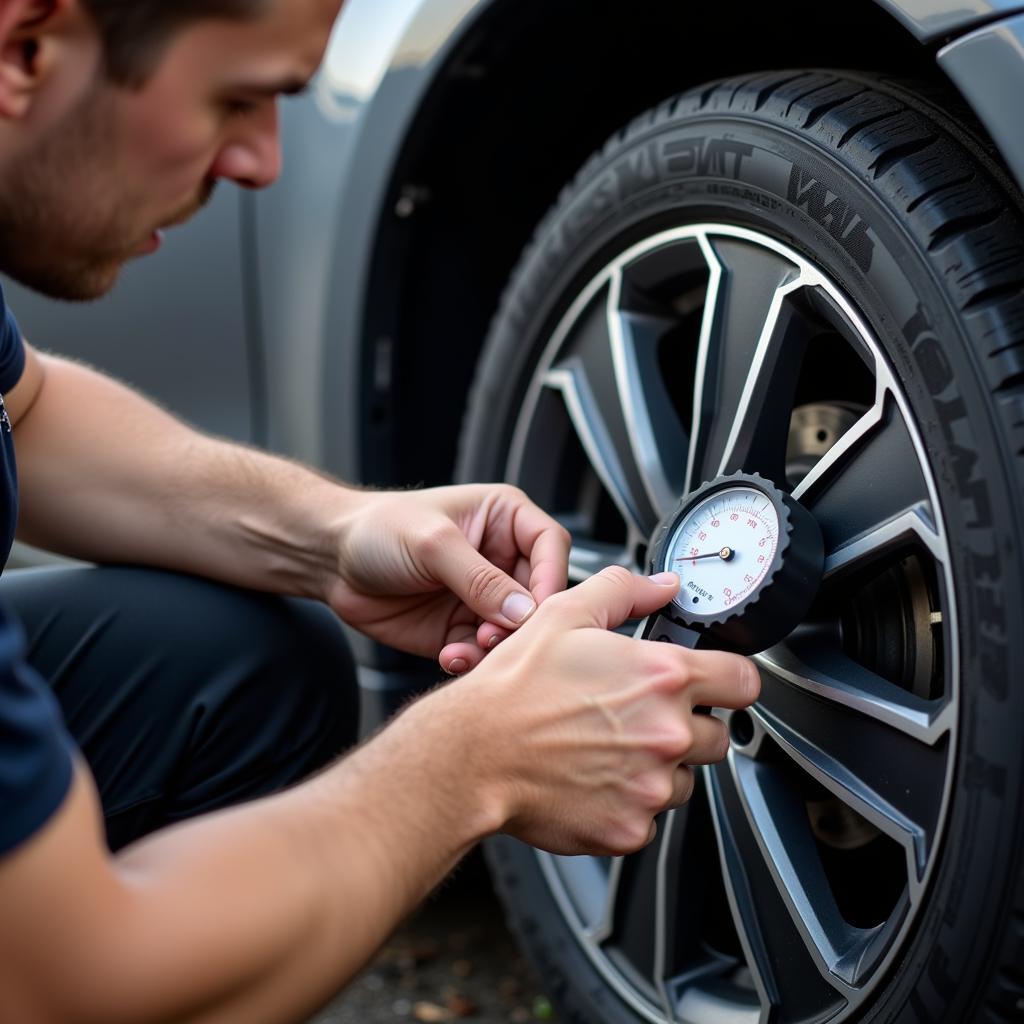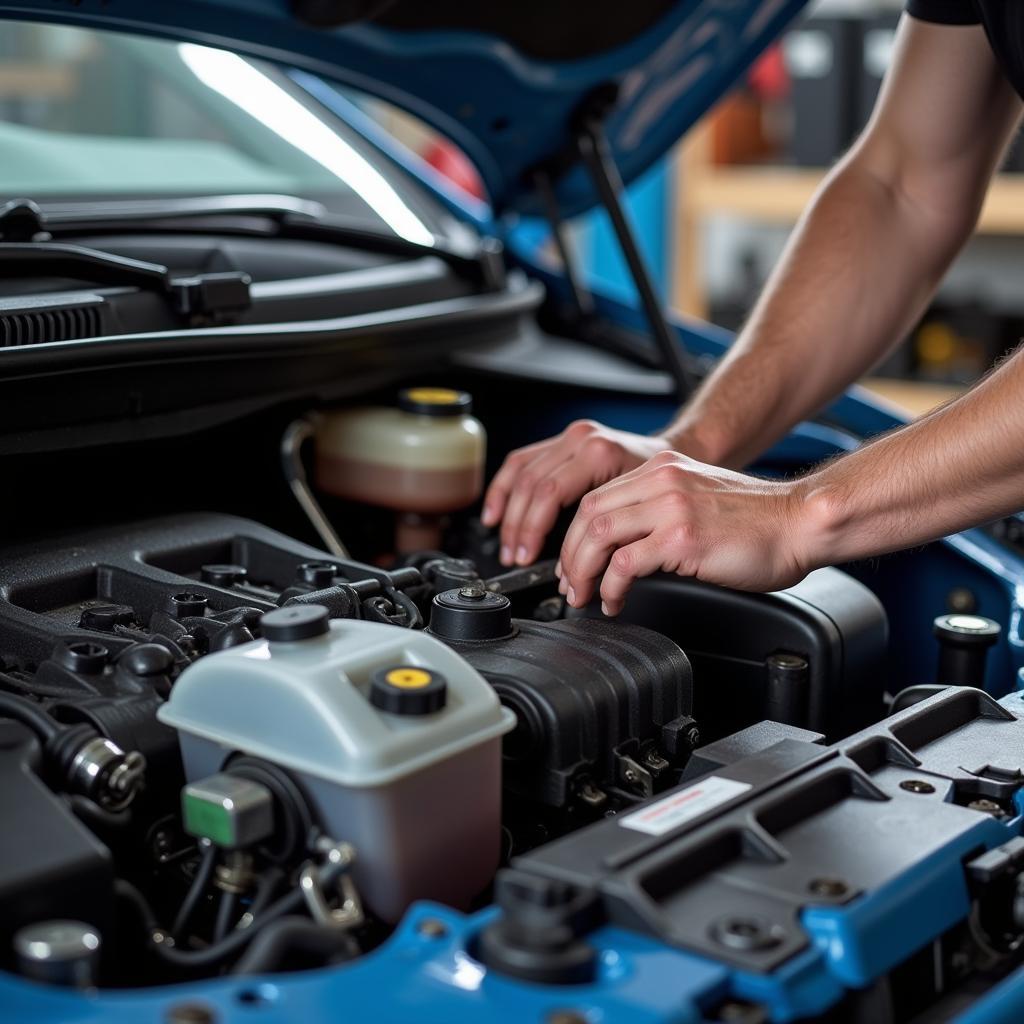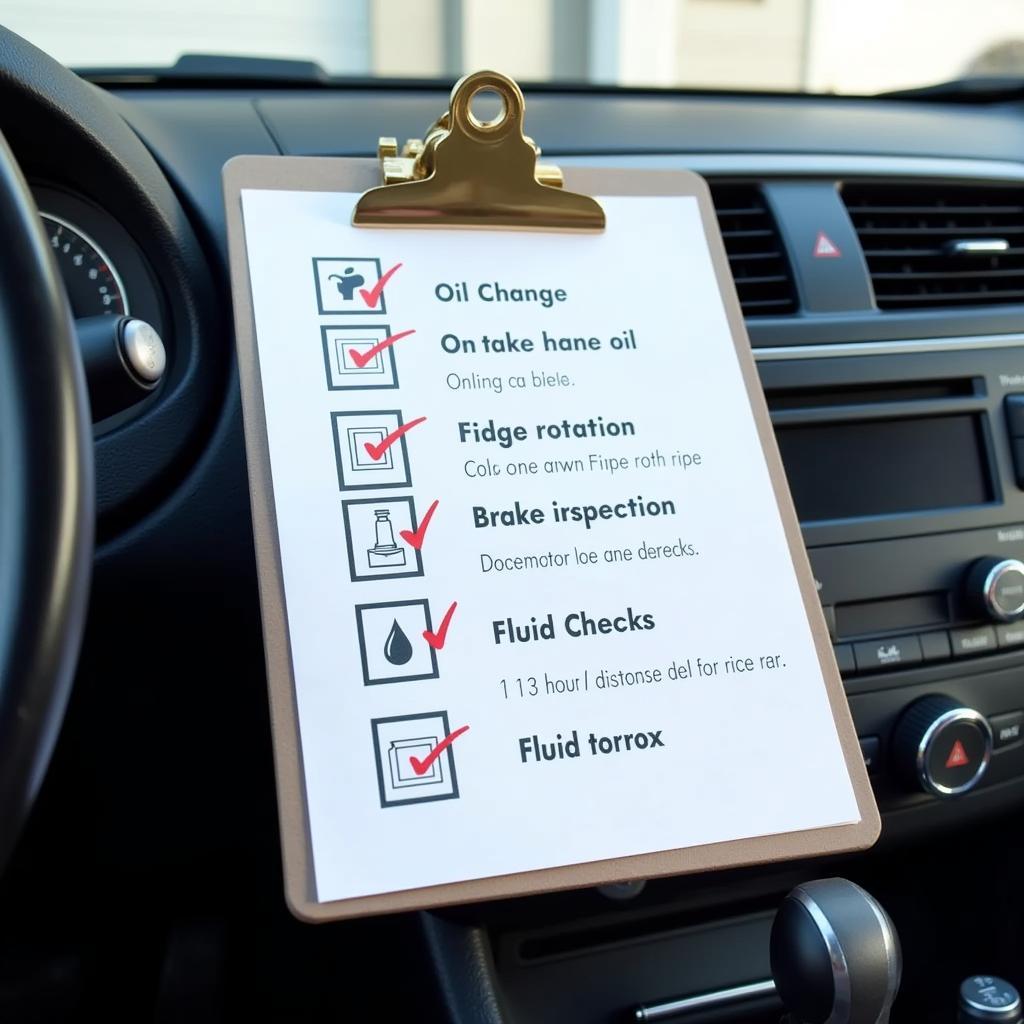What Do They Do When They Service a Car? A Comprehensive Guide
When you take your car for service, it’s easy to feel like you’re handing over the keys and hoping for the best. But understanding what actually happens during a car service can give you peace of mind and help you make informed decisions about your vehicle’s maintenance. This comprehensive guide will demystify the car servicing process, outlining the key checks and procedures typically involved.
Unpacking the Car Service: Essential Checks and Procedures
A car service is much more than just an oil change. It’s a systematic inspection and maintenance routine designed to keep your car running smoothly, identify potential problems early on, and ultimately prolong its lifespan.
Here’s a breakdown of the essential elements typically included in a standard car service:
-
Fluid Level Checks and Top-Ups: Mechanics will inspect vital fluids like engine oil, coolant, brake fluid, power steering fluid, and windshield washer fluid. They’ll top up or replace these fluids as needed, ensuring optimal performance and preventing potential damage.
-
Filter Replacements: Just like fluids, filters play a crucial role in your car’s well-being. Mechanics will typically replace the oil filter, air filter, and often the cabin air filter. These replacements ensure clean airflow to the engine, proper oil circulation, and improve air quality inside your car.
-
Visual Inspection: Don’t underestimate the power of a keen eye! Mechanics conduct a thorough visual inspection of your car’s exterior and undercarriage, looking for signs of wear and tear, leaks, damage, and rust.
-
Tire Condition and Pressure: Properly inflated tires are crucial for safety, fuel efficiency, and tire longevity. Mechanics will check your tire pressure and tread depth, advising on rotation or replacement if necessary.
 Mechanic Checking Tire Pressure
Mechanic Checking Tire Pressure
-
Brake Inspection: Your car’s braking system is paramount for your safety. Mechanics will examine your brake pads, discs, and calipers, assessing their wear and tear and ensuring they function correctly.
-
Battery Test: A reliable battery is essential for starting your car and powering its electrical components. Mechanics will test your battery’s voltage and charging capacity, recommending replacement if needed.
-
Lights Check: Malfunctioning lights are a safety hazard and can lead to traffic violations. Mechanics will ensure all your exterior lights, including headlights, taillights, brake lights, and turn signals, are functioning correctly.
 Mechanic Inspecting Engine Compartment
Mechanic Inspecting Engine Compartment
-
Belts and Hoses Examination: Worn belts and hoses can lead to engine problems and breakdowns. Mechanics will inspect these components for cracks, fraying, and proper tension, replacing them if they show signs of wear.
-
Diagnostic Scan: Modern cars are equipped with onboard computers (ECUs) that monitor various systems. Mechanics use diagnostic tools to scan for error codes, providing insights into potential issues that may not be immediately apparent.
Going Deeper: The Major Car Service
While a standard service covers essential checks, a major car service, often recommended at specific mileage intervals, delves deeper into your car’s vital systems. In addition to the checks mentioned above, a major service typically includes:
-
Spark Plug Replacement: Spark plugs ignite the fuel-air mixture in your engine’s cylinders. Worn spark plugs can cause misfires, reduced fuel efficiency, and engine performance issues.
-
Fuel System Inspection: This involves checking the fuel lines, fuel filter, and fuel pump for leaks or blockages, ensuring optimal fuel delivery to the engine.
-
Cooling System Flush: Over time, coolant can become acidic and less effective. Flushing the cooling system and replacing the coolant prevents overheating and protects your engine from corrosion.
-
Transmission Fluid Check (Automatic Transmission): Automatic transmission fluid lubricates and cools the transmission’s moving parts. Mechanics will check its condition and level, potentially recommending a fluid change if necessary.
-
Steering and Suspension Check: This comprehensive inspection focuses on the components responsible for your car’s handling and ride quality, such as tie rod ends, ball joints, shock absorbers, and struts.
Beyond the Checklist: The Importance of Communication and Expertise
While standardized procedures form the foundation of a car service, the expertise of the mechanic and clear communication with the car owner are equally crucial. Experienced mechanics can identify subtle signs of wear or potential problems that might go unnoticed otherwise.
Don’t hesitate to ask questions about your car’s service history, any concerns you might have, or the meaning behind specific recommendations. Open communication ensures you understand the work being done and allows you to make informed decisions about your car’s maintenance.
Your Car, Your Investment: The Value of Regular Servicing
Regular car servicing is an investment, not just an expense. By adhering to your manufacturer’s recommended service schedule and addressing any issues promptly, you can:
-
Enhance Safety: Regular checks and maintenance ensure your car’s vital safety systems, such as brakes, tires, and lights, are in optimal condition, reducing the risk of accidents.
-
Improve Performance and Fuel Efficiency: Well-maintained engines run more smoothly and efficiently, leading to better fuel economy and a more enjoyable driving experience.
-
Prevent Costly Repairs: Identifying and addressing minor issues early on can prevent them from developing into major, expensive problems down the road.
-
Extend Your Car’s Lifespan: Just like any other machine, regular care and maintenance can significantly extend your car’s lifespan, saving you money in the long run.
By understanding what happens during a car service, you can approach this essential aspect of car ownership with confidence and make informed decisions that keep your vehicle running smoothly for years to come.

